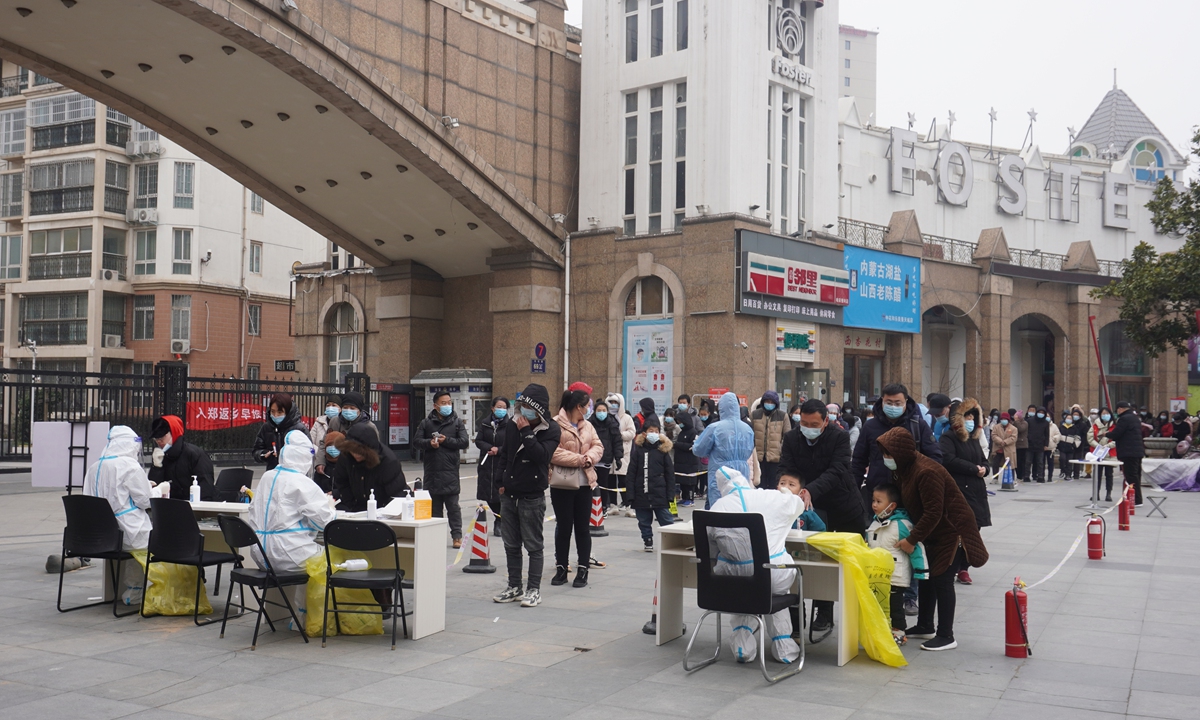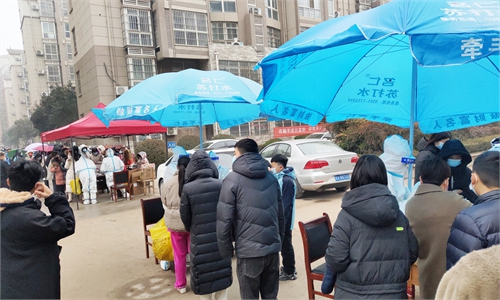
Residents line up to take nucleic acid tests in Zhengzhou, Central China's Henan Province on January 4, 2021. Photo: VCG
Central China's Henan Province, the only province in Chinese mainland battling both Delta and Omicron variants, further escalated epidemic control measures as one more city was locked down. The province reported the highest number of confirmed COVID-19 cases on Tuesday alone in China.
Among the 118 confirmed cases, 12 were from Zhengzhou, 65 were from Anyang and 41 from Xuchang. The Omicron variant was found in Anyang while Yuzhou, a county administered by Xuchang, and Zhengzhou are battling the Delta variant.
Aside from Anyang, where lockdown was instituted from the time the outbreak started when two individuals with Omicron variant were discovered, Huaxian, a county administrated by Anyang, that is about 130 kilometers away from Zhengzhou and 70 kilometers from Anyang, starting from Wednesday will also impose lockdown.
Residents in Huaxian should stay indoors and work from home. Other than those for necessary usage, all vehicles are banned on the roads. Businesses, restaurants in the county suspended operations, except stores that provide necessities, pharmacies and medical institutes. Public transportation was also suspended.
The latest information from Anyang showed the city has reported a total of 123 confirmed cases as of Wednesday morning. A fresh round of mass testing will be rolled out on Wednesday. To facilitate testing, Anyang has dispatched 500 mobile nucleic acid sample collecting vehicles.
Anyang also established a communication channel for residents to speak directly with government officials.
To ensure that the outbreak in Henan is contained as soon as possible, Vice Premier Sun Chunlan urged local officials to adopt precise anti-epidemic measures in her recent visit to Henan cities.
Sun said Anyang, which has Omicron cases, should further increase efficiency of nucleic acid testing and epidemiological studies and adopt strict control within the city, so as to cut off viral transmission and any virus spillover. Patients who are infected with Omicron usually have upper respiratory infection and should be committed into designated hospitals and treated by national-level medical experts, Sun said.
The epidemic in Zhengzhou has been stable. The anti-epidemic focus should be prioritized into key regions and key groups to screen out potential risks, and achieve dynamic zero cases, Sun said.
She also mentioned that the risk of community transmission in Yuzhou still exists, urging to quarantine all close contacts and secondary close contacts and shorten the duration of the fight against the epidemic.
Global Times

